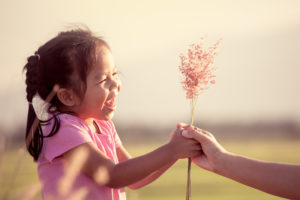Mean Girls – I Was One
I love reading poetry. Slowly. Letting the words simmer in my brain, melt into my heart. I even dabble in writing poems. The practice provides me with little artistic success, I’m sorry to say, but with great emotional release. Reading and writing poetry cuts right through to a deep place that other genres often don’t reach.
Every Saturday, I look forward to receiving Alison McGhee’s “Poem of the Week” (https://alisonmcghee.com/about/blog/) in my inbox. Ms. McGhee chooses a poem each week that has touched her in some way and introduces the poem with a related personal anecdote. (Many weeks, Ms. McGhee’s short intro is as powerful as the poem—always, it is a wise and thoughtful little piece to savor.)
“Kindness is an act of self preservation”
 Her March 2nd post shook me to the core. In “Poem for the Woods,” Catherine Pierce reflects on a time in her childhood when she was inadvertently cruel. Ms. McGhee introduced the poem with a story of how she herself was cruel to a boy on the school bus, way back when, and of how her action—which was caused by her own fear and frustration—lingers today in her mind and weighs still on her heart.
Her March 2nd post shook me to the core. In “Poem for the Woods,” Catherine Pierce reflects on a time in her childhood when she was inadvertently cruel. Ms. McGhee introduced the poem with a story of how she herself was cruel to a boy on the school bus, way back when, and of how her action—which was caused by her own fear and frustration—lingers today in her mind and weighs still on her heart.
“Kindness,” Ms. McGhee writes, “is in part an act of self-preservation. Had I just sat still and endured the ride I could have spared myself the lifelong memory of having hurt a kid like me, another kid who was only trying to get home.”
Kindness is truly not just a gift to others but to one’s self, as well. The price one pays for being unkind can be great and long-lasting.
She wore wool skirts and wool vests and crisp white cotton blouses, when everyone else was wearing two-toned jeans and Huk-a-Poo patterned shirts made of nylon.
While reading Ms. McGhee’s words, I immediately thought of Lucy Martin. I don’t remember if it was 4th grade or 5th or 6th, but I can see Lucy today as clearly as if she were sitting right across from my desk.
Lucy: her stick thin figure, her cat-eye glasses. Greasy, black hair pulled straight back. Her ultra-tight pony, exposing the acne on her forehead, the acne that not yet graced any other of our faces.
Lucy was an early bloomer. She was also from Czechoslovakia and had a strong accent and a strange lilt in her voice. She wore wool skirts and wool vests and crisp white cotton blouses, when everyone else was wore two-toned jeans and Huk-a-Poo patterned shirts made of nylon.
I knew what it was like to be Lucy. Maybe not exactly what it was like to be Lucy but to be someone who stood out in an odd way, while I hungered to fit in, to blend with others. I was chubby—no, I was fat—and I bore my weight like a heavy stone tied around my neck. I felt like I was drowning, slowly, in a deep, dark pool.
I think she may have thought me to be a friend … which makes what I did even that much worse

This was not at a time when many kids were overweight, when video games and TV kept youngsters sedentary. No. Most of our families had just one TV, the three networks along with channels 9 and 11 for reruns—and channel 13 if you wanted to watch something that would make you smart. Kids were thinner, in other words. But not me. I was round and plump and fleshy. I did not blend.
I cannot say that I befriended Lucy Martin, but I would talk to her. I showed interest in who she was. She was interesting. I think she may have thought me to be a friend—I’m not sure that anyone else spoke to her without teasing—which makes what I did even that much worse.
It’s not that I said anything mean. I wouldn’t have done that. But in class, I would stare at her, at her greasy hair, at her pus-filled zits. I would stare at her in disgust. Lucy didn’t actually disgust me, but I put on that face, the face that I myself had endured from so many of the others of my classmates—I knew it well.
I put on the face of disgust with the intention of hurting her
When Lucy saw me look at her in that way, her stick straight posture became even straighter and her jaw clenched tight. I could feel the heat of her rising anxiety—and burn of her sadness. There was no way for Lucy to escape my sharp gaze.
I knew about having no escape. In class, I was safe for the most part, but the playground was a different story. And gym. There was always gym. I would be picked last and the team that got me would, without fail, utter a collective groan of disappointment. I can’t forget Rhonda (although I forgot her last name) who made it her job to make me miserable. She was very good at it.
And then there was home. It was lonely, so lonely. My mother was depressed and had nothing to give. My dad was at work; my sister who was six years older was perpetually out with friends, and my sister who was twelve years older (and who had been my dear mother figure) got married, then divorced, and was living in CA. (I started gaining weight when she moved.)
While I could see no escape from my reality of loneliness, Lucy might have been a remedy. We should have been friends
But Lucy and I could not be friends. I could not befriend Lucy because I needed her as a target. I needed to be better than somebody, than something, and I wanted to taste power in some small way, as I had so little power in my life at the time. My eyes, my mean eyes, needed somewhere to land.
Catherine Pierce (http://catherinepierce.net), in her poem, tells of a time when she and her friend walked through the woods, carrying salt. They
“ventured out to where the rocks teemed with slugs …
We wanted to see mineral against membrane
We wanted to see something living melt.”
 Ms. Pierce and her friend were just curious—they weren’t intentionally mean or on a mission to feel their power, as I was. Yet, Ms. Pierce ends her poem like this:
Ms. Pierce and her friend were just curious—they weren’t intentionally mean or on a mission to feel their power, as I was. Yet, Ms. Pierce ends her poem like this:
“ …. If I could,
I’d find my younger self in those woods and stop her.
I’d say, Someday you’ll carry your cruelties with you
and you’ll never be able to set them down. Keep walking now.
Keep pretending you know of nothing but kindness.”
I have been carrying my own share of cruelties. My Lucy Martin stares haunt me to this day.
Hurt people hurt people
That is one of the most powerful statements I know. Mean-spiritedness and mean actions do not come from a place of peace or joy.
When we are feeling down or angry, we lash out. That’s when our eyes can pierce others. But carrying cruelties is too heavy a burden.
If, for no other reason—and there are many other reasons—be kind for “self-preservation.”
Oh, to unburden the load.
What cruelties do you still carry? What have you learned from the burden? I’d love to hear your thoughts—please send me an email or leave a comment.
May we all walk unburdened through the week.
See you next Friday.
Diane

P.S. Adri Sdao, friend, fellow MFA candidate at Antioch, and previous contributor to WomanPause (https://dianegottlieb.com/whats-in-a-word-much-more-than-we-think/), has written a wonderful, moving blog about homelessness just published in Lunch Ticket, Antioch’s literary journal. Please take a look: https://lunchticket.org/los-angeles-in-the-rain/


Thank you, Diane, for showing us, by example, how to have the humility to own the mean things we have said and done to others, which can then haunt us as adults. At high school I was mean to a girl who started late & had no friends. I joined in with the other kids, took the lead on one memorable occasion, instead of standing up for her. Miraculously, I came face-to-face with her as an adult, when I was visiting my parents. I apologized to her and she graciously accepted. I was fortunate to have had the opportunity to express remorse.
I love your line “Hurt people hurt people.” This understanding lights a path towards empathy, in contrast to the cul-de-sac of remaining stuck in the pain caused. It’s important that we also extend this empathy to our younger selves.
I often think of Chris Hardwick’s parting message on most of his @ midnight shows (sadly they ended in 2017) on Comedy Central: “Be nice to each other, godammit!”
This should be a bumper sticker, no?
Thanks, Sarita, for sharing your experience. It’s so wonderful that you not only had the opportunity to express remorse but that you too it! And yes, “Be nice to each other, goddammit!” would be a wonderful bumper sticker!
Great article. I have a feeling that many of us can identify with being a ‘mean girl’. I remember Maria in my class who came from Italy with her widowed mother and 2 much older brothers. She spoke very little English and wore black clothing that was not what anybody else wore. I feel so bad that I did not make her my friend. I think we would have had some fun getting to know each other. She and her family lived in a 1-bedroom apartment over a bakery. Wish I could have a do-over on this one. Thanks for the reminder to be kinder.
Thanks, Judith, for your comment! It’s seems like Lucy and Maria had some of the same challenges. I can so relate to wanting a do-over. Great way to put it!
Diane, this is a beautiful piece, and I agree with Nicky, so well written! Thank you for sharing your childhood story about Lucy Martin. What you expressed couldn’t be more true: remembering the times we have been cruel is deeply painful. I guess the only way I have been able to manage the burden is to let it be the fuel for kindness moving forward. Like the beautiful line in Naomi Shihab Nye’s poem “Kindness” : “Before you know kindness as the deepest thing inside, you must know sorrow as the other deepest thing.”
Thanks, Melissa! Love this: “the only way I have been able to manage the burden is to let it be the fuel for kindness moving forward.” What a beautiful way to look at past cruelties and to turn them into something useful. And, thanks for sharing Nye’s words–gorgeous and true.
All of my childhood and young adult hood meanie episodes have never left the forefront of my brain.. although, they were few, still lingers.
Thanks, Lisa, for sharing. How they linger!
Hi Diane,
This post is so well written! I love all the details you include. Very inspiring to my wanna-be writer!
What your questions made me think of was how I tended to befriend the people no one else liked in grade school but thinking back on it now I realize that if they responded and wanted more, I ignored them like everyone else did. In that way I was probably more hurtful than if I hadn’t befriended them at all. It is getting harder to remember details as it was so long ago!
Thanks for sharing what you remember of your experience, Nicky–and for the comments about the blog! Isn’t it interesting how childhood peer influence works? As kids, there’s such a delicate balance of acceptance! Our kindness could only go so far before we felt the pressure to retreat.
What a beautiful, aching post. I’m so sorry for your pain as a child. I’m sorry for Lucy’s, too. For the pain of childhood in general. Love to you.
Yes, that pain of childhood!
Thanks, Alison, for you comment and for your inspirational posts! They make Saturdays special!